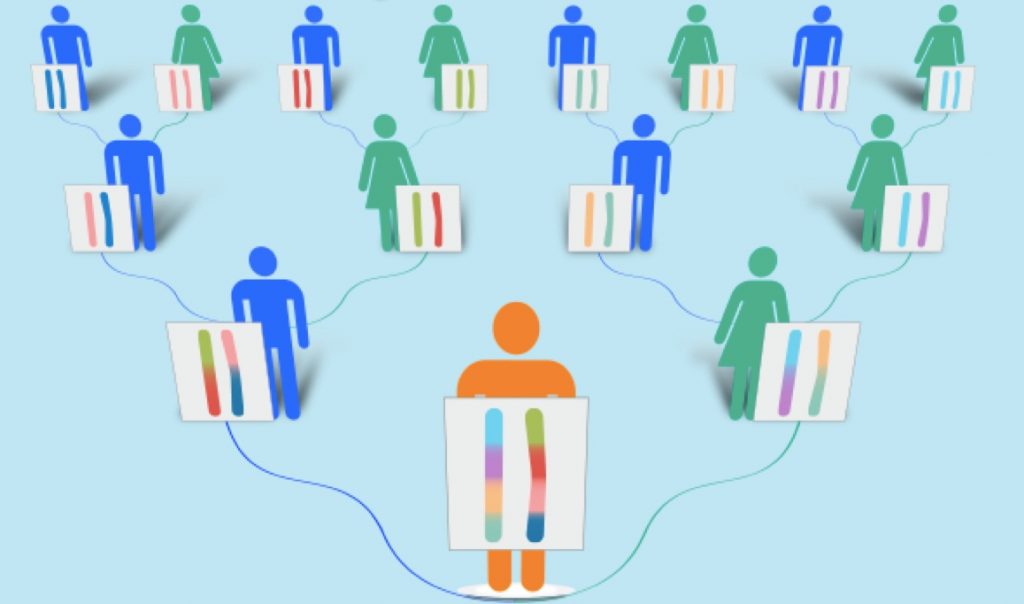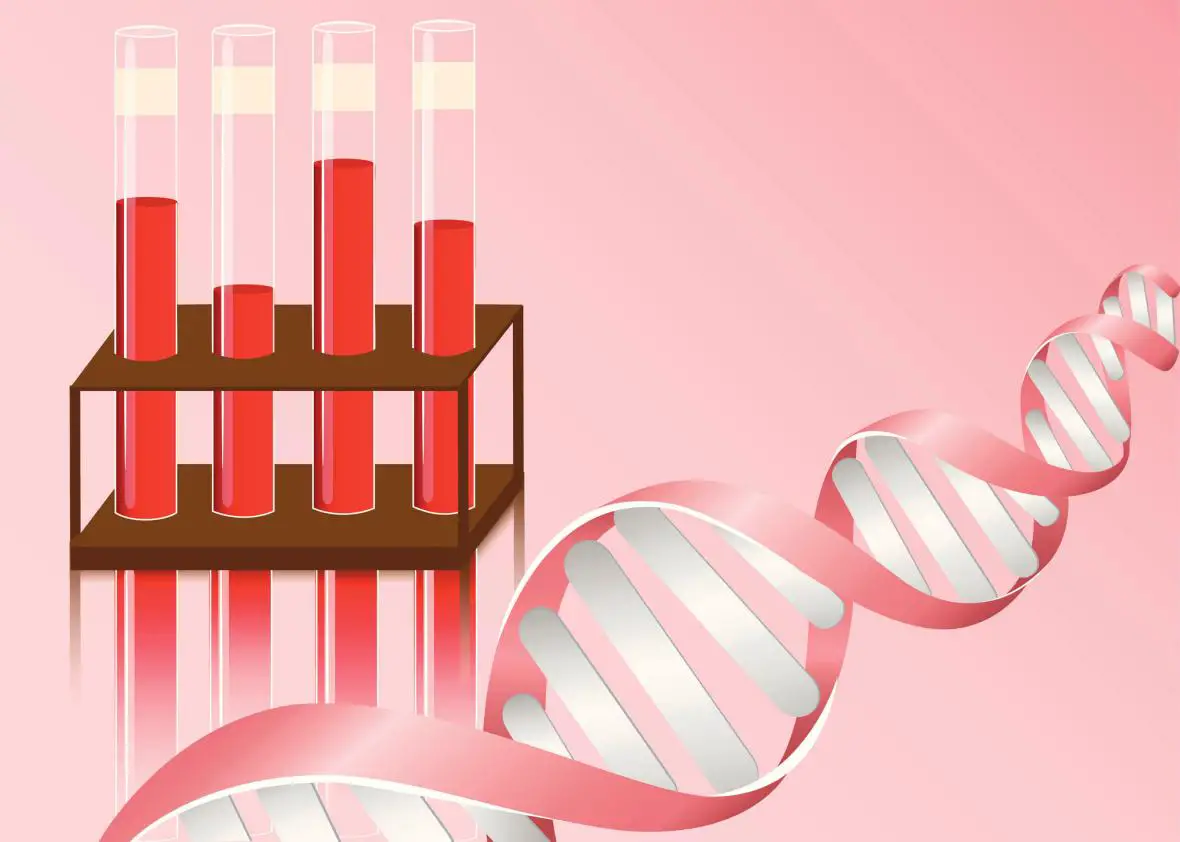The year is 2017, and the contents of your spit can now be analyzed to approximate where your great, great grandparents were born.
With ancestry-determining DNA kits like AncestryDNA, 23andme and MyHeritage — three of the best DNA ancestry tests that you can use — a report of your entire ethnic and racial makeup can be handed right to you, complete with pretty graphs, maps and labels that would make any stats nerd’s heart soar. Questions you’ve had about your ancestors for years and years can be answered within weeks if you’re willing to offer up some dough, properly salivate (placing some decadent chocolate lava cake just out of reach will do the trick), follow instructions and wait patiently for your results.
Even if you’re skeptical about the whole thing, you have to admit—the fact that this is even a feasible topic of discussion is pretty cool. Humans have been fascinated about their origins since the beginning of time, and they’ve typically relied on word-of-mouth, forensics and deeply rooted beliefs to solve and perpetuate these epic mysteries. Family members gather around as the eldest passes on tales of immigration and hardship, anthropologists and archaeologists spend their careers exploring and excavating, and writers and filmmakers spin their creative wheels to depict adventures that chronicle the past—all in pursuit of constructing narratives of humanity and individual lives.
And now, here we are, with the option of simply turning to science to do just that. What’s especially interesting is the timing of the popularity of these kits. They’re being talked about all over social media, and viral videos depicting shock and waves of emotion, like this and this, are popping up all over. Millennials are particularly intrigued by the kits, which is almost paradoxical. Here’s what I mean.

Millennials are notorious for moving away from tradition and seizing lifestyles that change things up, especially in the marriage and religion arenas. In terms of attitudes toward intermarriage, a Pew Research Study found that 85 percent of millennials, regardless of race, would be fine with a family member’s marriage to someone of any different ethnic group, compared with just 38 percent of people aged sixty-five and older. And for religion, Pew found that 35 percent of adult millennials (born between 1981 and 1996) are religiously unaffiliated, in comparison with just 11 percent of the Silent Generation (born between 1928 and 1945). Undoubtedly, millennials feel more comfortable than past generations did with drifting away from their roots. They seem to embrace shaking things up in the midst of family histories that have always maintained the same racial, ethnic and religious identities.
And so, the paradox: Millennials’ deliberate, big lifestyle choices show that they’re okay with breaking family traditions in pursuit of their own personal fulfillment, yet they’re also doing something that doesn’t fit in with this idea—they’re spending money on DNA ancestry kits to find out where they came from. Almost all signs show that millennials find a thrill in moving away from convention, yet their curiosity about these kits shows that perhaps they want nothing more than to connect to their roots. So, what does this say about young people today? Do they feel guilt from drifting from established, decade-long traditions? Do they crave connection to their ethnic background, culture and/or race? Is it all just innocent curiosity? Maybe it comes down to a struggle with identity.
Racial and ethnic identity is already a blurry, complicated idea on its own. And when you apply it to yourself, living in an incredibly diverse America, as well as having ancestors from all over the world, it can become even more ambiguous. On top of these, you’re planted in an America that’s growing increasingly heterogeneous, with mixed racial and ethnic backgrounds becoming more and more common. The Pew Research Center found that multiracial Americans are “growing at a rate three times as fast as the population as a whole.” Times are a-changing, and it’s a lot to keep up with.
This study also found that 60 percent of multiracial adults are proud of their mixed-race backgrounds, and 59 percent feel their racial heritage has made them open to other cultures. Most multiracial people find pride in their racial makeup, and mixing is creating an increasingly open and accepting America. But at the same time, 24 percent of multiracial adults have felt annoyed, because others have made assumptions about their racial background. And 61 percent don’t even consider themselves to be multiracial. In fact, the majority has changed the way they describe their race throughout their lifetimes.

And now, enter le identity struggle, not just for multiracial people, but for anyone who isn’t one pure race and ethnicity (which, according to these kits, is pretty much everyone). Racial and ethnic identity is much more than just genealogy: It’s a combination of physical appearance, where you live, how others perceive you, how you perceive yourself, what you’ve been told since childhood, which sides of your family you grew up embracing, which sides you see value in embracing now, the foods you eat at holidays, which holidays you celebrate in the first place…the list goes on.
With all of these factors, trying to see where you fit in can be a major headache. Racial and ethnic identity is gleaned from a narrative you’ve been immersed in for your whole life, and one that you can’t really see from the outside. Most likely, it’s biased, and it’s messy. Secondly, add in all of the saturation and clutter from news (a lot of it coming from Facebook), and how it casts biases on the races/ethnicities of the people involved. It gets even more hectic.
Perhaps these reasons are why Millennials, and other age groups as well, are turning to these DNA kits. Rather than drowning in an examination of your whole life in order to determine your racial/ethnic identity, and rather than getting overwhelmed by information on social media, you can just turn to science. Science will give you a simple, clutter-free answer about where you’re from. And then you’re golden. You get what you’ve been looking for.
twenty-first century dwellers love a quick fix in solving a huge dilemma. And identity, the question, “Who am I?” is something people spend their whole lives trying to figure out. In terms of figuring out your racial and ethnic identity, these kits are heroes for the people who want a speedy answer.
But, as you and I both know, they only cover about 1 percent of the whole story.


















Hi there.
Great post. I am a Genetic Genealogist who has been asking that very question for some time now. I appreciate your insights. Goes to show that knowing who we are and what we are, are intrinsically embedded into the fiber of our very being. I love nerding out with DNA!
YOUR genealogy matters.
Peace
[…] Why Do Millennials Care About DNA Kits?: “For a generation infamous for breaking from tradition, they seem particularly interested in their genetic heritage.” Click here to read more via StudyBreaks […]